

Keywords: social movements; computer mediated communication
Social movement organizations (SMOs) articulate their demands and interests through protest actions with the aim of influencing government decisions. For the success of the collective action, all accessible resources need to be effectively mobilized. As the communication sphere changes with the emergence of the Internet, many SMOs use Computer Mediated Communication (CMC) to carry out their objectives. The author of this paper focusses on the role of the Internet in the dynamics of alternative social movements, and investigates theCMC of two Hungarian SMOs: theHungarian “Critical Mass” and the Zengõ-movement. The former’s aim is to promote cycling istead of the use of cars in city-traffic,while the latter was a successful single-issue-movement against aNATO-locator’s installation on the top of Zengõ Hill int he South of Hungary, near the city of Pécs.. The author points out that the Internet by itself is an inadequate tool to build up and maintain strong commitment. Nevertheless, it is capable of communicating the messages of alternative movements. Because of low affiliation costs, CMC helps to gain support for the SMOs but this attachment doesn’t last long.
More...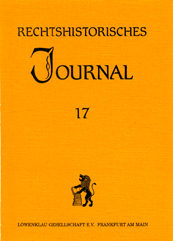
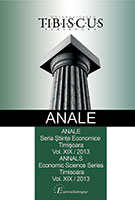
Keywords: deposit guarantee scheme; deposits; banking system
When a large withdrawal from banks occurs, customers withdraw their deposits, so banks are likely to go bankrupt because of liquidity problems. There are several mechanisms that allow the banking system to avoid the phenomenon of massive withdrawals from banks. The most effective one is the deposit insurance. The deposit insurance is seen primarily as a means of protecting depositors of credit institutions, and secondly as a means of ensuring the stability of the banking system. This article described deposit guarantee scheme in Romania and other country.
More...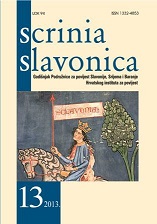
Keywords: Slavonia - history; name Slavonia
Croatian translation: Robert Zett, “Über den Namen ‘Slavonien’”, Radovi Zavoda za slavensku fi lologiju 32 (1998), 215-219.
More...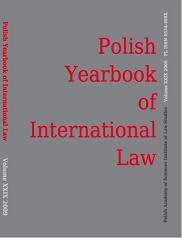
Keywords: unilateral act; international law; Germany; WW II; compensation
The paper is devoted in fact to two unilateral acts. The first of them is the statement of chancellor Schröder made in Warsaw on 1 August, 2004. The second is the statement of the Polish government on the waiver of payments of German reparations made on 23 August, 1953. The first statement is generally believed to be an act of legal importance. The element that attaches the utmost importance is the promise of the German government to present before international courts the critical evaluation of individual claims of former owners of land on the territories that came under the Polish sovereignty after the Second World War. The elements of that evaluation embrace the conclusions according to which: “there could be no room for the restitution claims from Germany”, such claims would “put the history upside down”, “proprietary problems connected with the Second World War are no longer a subject for the two governments” and “neither the federal government nor any serious political force in Germany support such claims if they are nevertheless put”. There could be no room for doubt as to the legal force of that statement. Its descriptive style or inclusion of elements upon which the government has only limited or no influence at all (the behavior of political parties or individuals) cannot change the binding force of statements relating to the German state as such. In fact the statement is not only a promise. I contains also the elements of waiver and recognition (as to the fact that there is no longer a subject of claims and that they would put the history upside down). The waiver results from the same sentences. It is limited to claims made on the state level only. The individual ones are not cancelled as such. If they are however made and not satisfied there is no longer a possibility to put them on the level of states. The second act made in 1953 is also quite general. Although from the historical perspective there could be no doubt regarding the interrelationship between that act and the USSR-GDR agreement, the statement of the Polish government did not refer to the latter expressly. The author analyses critically the arguments aimed at the justification of the nullity of the act presented in the previous literature. In his opinion it would be very difficult (if possible at all) to put into question the legal force of the act. The author however is not prepared to accept the erection of the Chinese wall between the waiver and other international acts giving rise to the obligations of the author. In that context he refers to the rebus sic stantibus argument according to which the presentation of claims on the side of Germany could justify the new evaluation of the results of the war for the Polish state and nation. That solution would not be happy for any party nor for the stability of law, but it could be perceived as an extreme solution for the most extreme course of events.
More...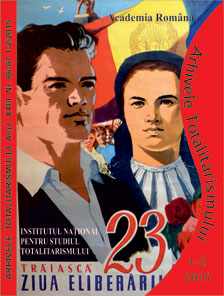
Keywords: Armenian genocide; Communism
This is a review of Levon Harutiunian's book Siberia dus-întos. Memorii, Meteor Publishing, Bucureşti, 2014.
More...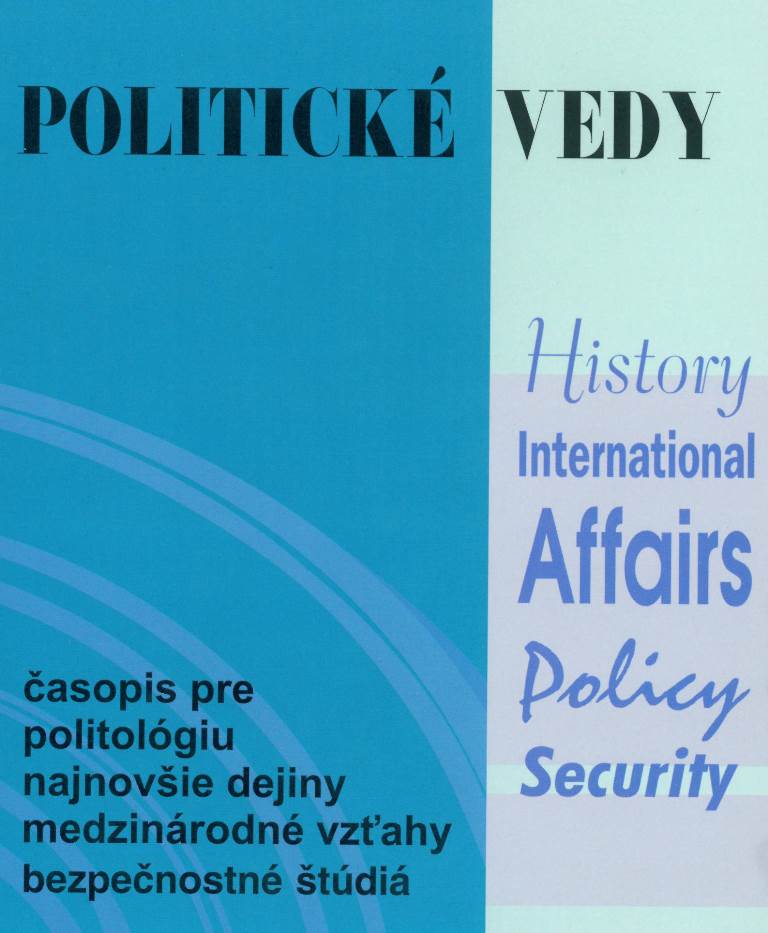
Keywords: Federal Republic of Germany;German Party System;Constitution of FRG;Social Democracy;SPD;"Third Way" Concept;Agenda2010
German SPD is at present a democratic “catch all” party, which unites the people with various religious, ideological or economic courses, and which manifests peace, liberty, solidarity, justice, equality of the men and women, and the protection of the environment. However, in present, there is an opinion in the German party and political system that SPD goes through the deepest crisis since the beginning of the 21st century. Presented article deals with the analysis of the position and the activity of Social Democratic Party (SPD) of Germany in the German political system in the 21st century and focuses on the issues connected with this social-political crisis of the social democracy in the Germany. The aim is to inspect closer the issues of SPD and through the exhaustive analysis provide the answers on the questions whether the party faces the deep crisis, and how is this situation reflected and what steps are needed for the solution. The article has used predominantly the method of historical analysis, partly comparative method and theoretical method. The results are showing, that the main reason of the SPD misery is the loss of its own fundamental value oriented political identity caused by the concept of so called Third Way, demotivation and alienation from the member base, the absence of the charismatic leader. SPD has the long-lasting problem with the image and it needs to accomplish the analysis of its problems. The party needs to decide, what direction it wants to go in relation to the Agenda 2010 and the concept of the New Center, what conviction and idea it wants to represent to address the new electorate.
More...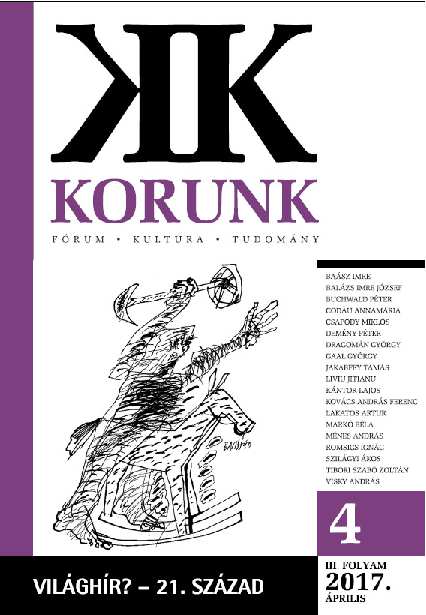
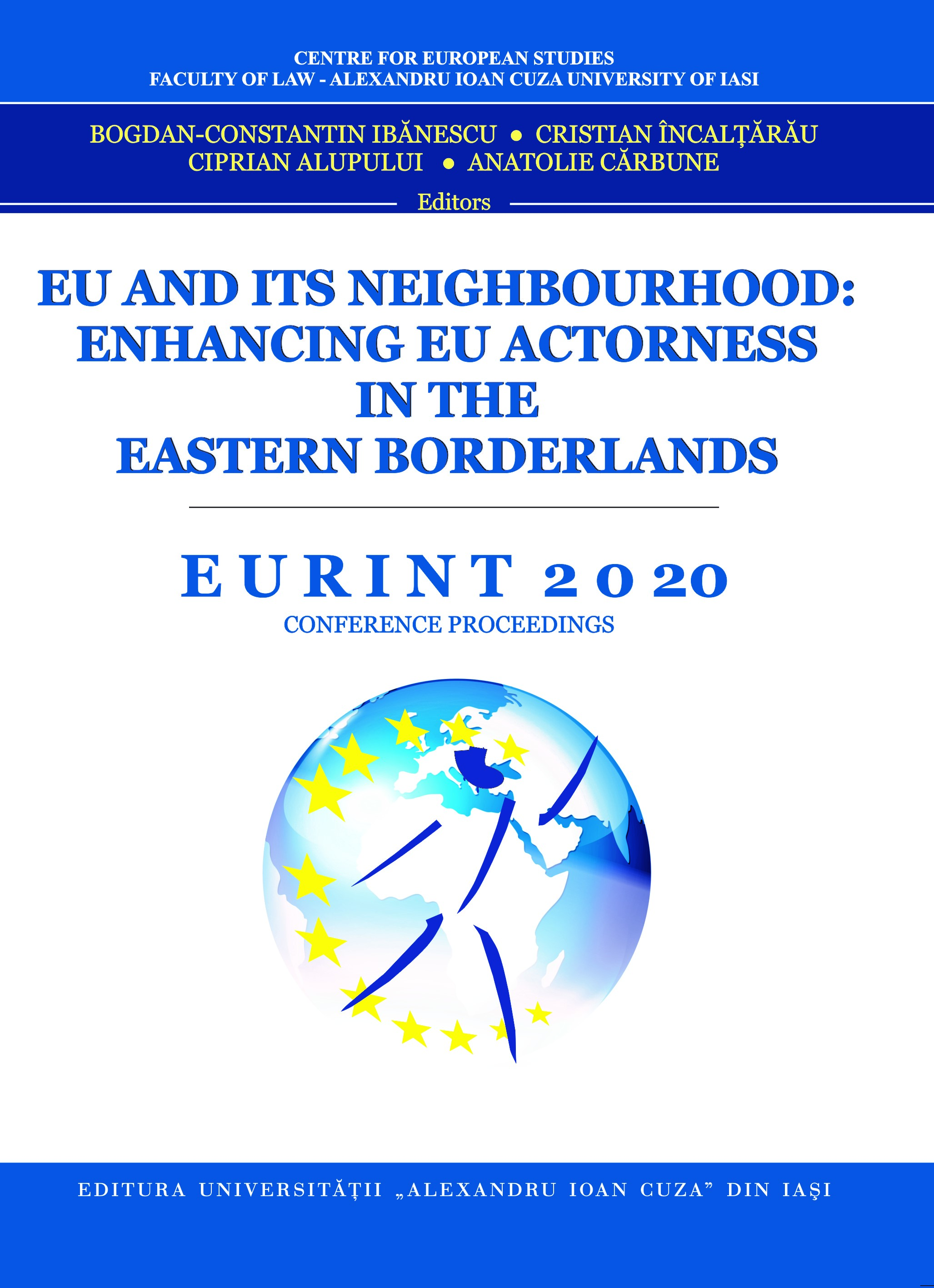
Keywords: EU; development; payer; player; neighbourhood;
The European Union is a global actor in the development sector, together with the United Nations and the World Bank, trying to fill the gaps of the Millennium Development Goals and to achieve the Sustainable Development Goals by 2030. By being engaged in political dialogues and development activities, the EU can be seen at the same time as a player and/or as a payer. The research goal of this paper is to understand where the EU seats at the table: payer - as Member States, under the EU umbrella, accompany the developing countries on various projects and programmes financed through different instruments and schemes, and player - as an international organisation which works in synergy with the other international partners.
More...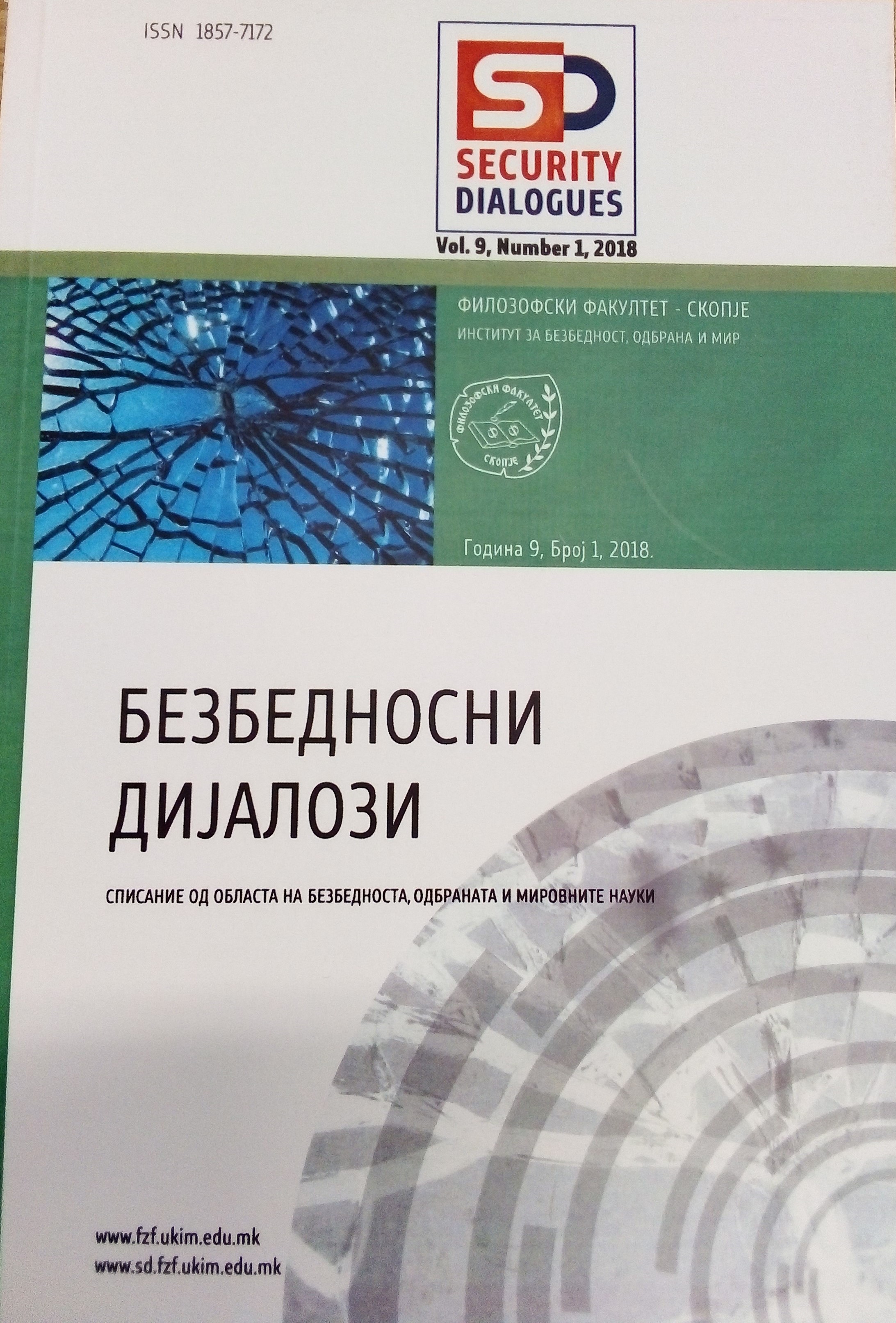
Keywords: financial sector; financial stability; financial crisis; crisis management in banking
The research findings presented in this article aim at explaining the framework of crisis management in the financial sector of Bosnia and Herzegovina (B&H). This framework is supposed to ensure financial stability even in the circumstances of business failure of institution, which could cause systematic damage. Based on the critical analysis of market conditions and legal and institutional frameworks established in the B&H, and having in mind the supranational nature of the crisis in the financial sector, the authors argue that an adequate mechanism for a resolution of any crisis situation must be founded on the measures that ensure accountability, transparency and integrity of all participants in the financial system. Recent legislative initiatives in the EU financial sector have resulted with an innovative framework of crisis management and tremendously comprehensive integration in the field of financial law. For that reason this research includes also an evaluation of the extent to which elements of this modern European mechanism for dealing with crisis situations in financial sector are included in the legislative implemented in the fragmented legal and institutional framework of B&H.
More...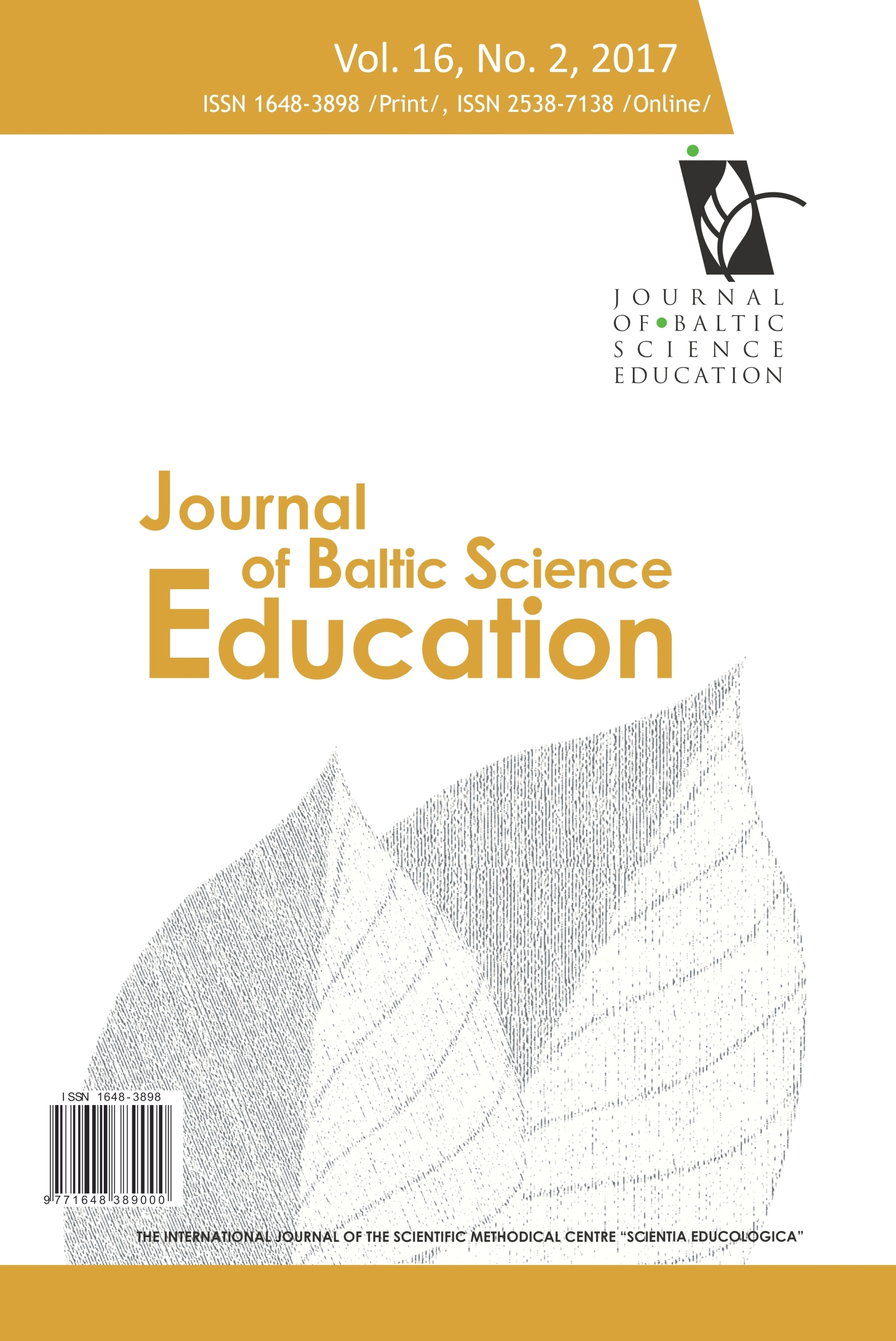
Keywords: self-determination theory; physical education; teacher’s leadership; participation motivation;
Based on Self-determination Theory (SDT), this research intends to analyze the effect of different physical education (PE) teachers’ teaching styles on students’ class participation motivation in universities. Students of some universities and colleges in Sichuan Province and Shanghai Municipality, China, are researched. Total 871 valid copies of questionnaire are retrieved for testing the research hypotheses. The results reveal positive correlation between incentive, intelligence inspiration and the intrinsic motivation of student learning as well as between charisma and the extrinsic motivation of student learning in transformational leadership. In transactional leadership, contingent reward and positive involving management show positive relationship with the intrinsic motivation of student learning, and negative involving management also presents positive relationship with the extrinsic motivation of student learning. Finally, it is suggested that PE teachers should build the situation which could satisfy the needs of autonomy, sense of competence and sense of belonging as well as create the physical education environment which could satisfy basic psychological needs of autonomy, competence, and sense of belonging to reinforce students’ positive motivation on physical education. Sports education is the most important education to develop the students’ physical and mental health.
More...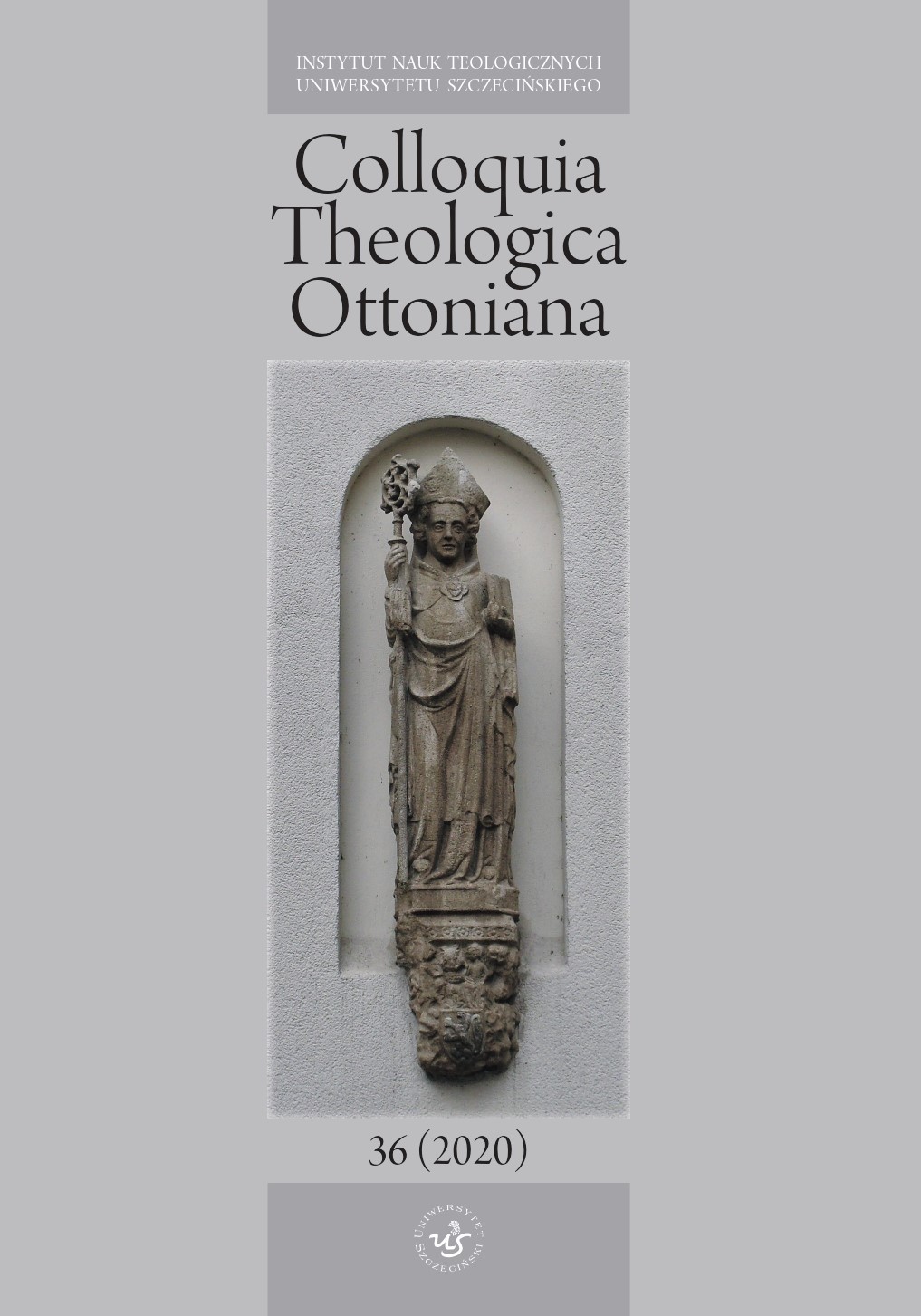
Keywords: Nietzsche; resentment (ressentiment); slave morality; genealogy
Friedrich Nietzsche (1844–1900), a critic of Western culture and Christianity in particular, was the author of Zur Genealogie der Moral (1887), a polemical study on the various manifestations of the constitution of morality. According to the German philosopher, ressentiment appears to be important in the genealogical study of morality. This specialised term, for which Nietzsche finds no equivalent in his native language, is the key to understanding the new construction of morality from the perspective of the revaluation of values (Umwertung aller Werte). This article is a selective attempt to describe ressentiment as a reactive feeling and a fact of human moral life by showing the semantic scope of the concept and presenting the functioning of the psychological mechanism, its meaning, and the consequences it produces. The lexical analysis of the concept allows us to examine, in a genealogical-Nietzschean way, what is the essential content of the terminus technicus itself. The semantic analysis leads to the discovery of ressentiment as a certain attitude of a moral nature that has its proper place in the spiritual-psychic structure of man. Ressentiment comes down to experiencing unfriendly feelings, usually directed against another human being. Using the knowledge of this mechanism, one can see a practical application in Nietzsche’s philosophy (dualism: the weak-strong and the victory of slave morality). The essential role of ressentiment in the moral life of man appears as a panacea serving to alleviate suffering. The product of ressentiment is slave morality, which has been victorious in history because of the weakness of the human condition as a “sick animal”. This mechanism is the source of Judeo-Christian morality. Ressentiment produced the poisoned values of Christianity and, as a result, of the entire European civilisation and decadent culture. In Zur Genealogie der Moral, Nietzsche repeatedly describes man as possessed by resentment – “der Mensch des ressentiment”. The man possessed by ressentiment is “the cellar animal, full of vengeance and hatred” and the discoverer of an impure conscience.
More...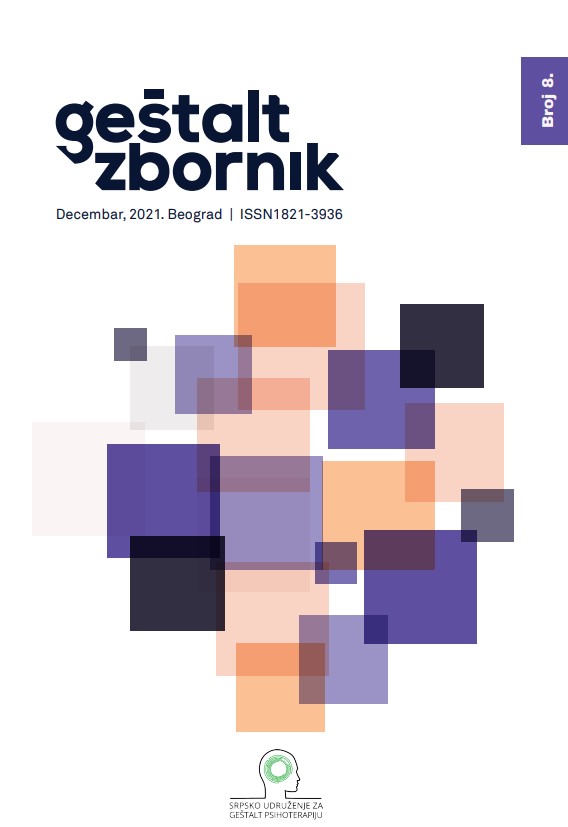
Keywords: children psychotherapy; psychotherapy phases; significant episode
This paper presents the initial and middle phases of psychotherapeutic work with an eight-year-old girl. The girl was brought to the first session by her mother, who has objections to her fulfillment of school obligations (she is not persistent, does not participate in group activities - or is excluded very quickly, fails toestablish cooperative relations with children from the class). Immediately after arriving at my office, there was an incident with three boys from the class: they pulled her with a scarf wrapped around her neck and knocked her to the floor. Aware that the symptom (behavior that Emma shows, which mom complains about) is only a manifestation of Emma‘s adaptation to background factors in the field, the psychotherapeutic work went in the direction of clarifying the background, verbalization and expression of Emma‘s repressed feelings related to relationships with peers, relationship with her mother, losses that marked her childhood… In this paper, psychotherapeutic work with a girl is divided into three phases in, together with a significant episode, while at the end of the paper a critical stance of psychotherapeutic work is given as well as a plan for further work.
More...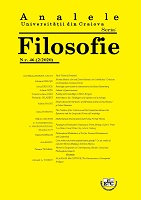
Keywords: early modern philosophy; Leibniz; corporeal substances; substantial forms; monads; quasi-monism; disclosed metaphysics; hidden metaphysics;
I will interpret Leibniz's monadology as “quasi-monism”, or “nearly monism”, or, from another perspective, a Monism of a special kind. The “quasi monistic” thesis is as follows: the man is a Monad, that is, a simple substance endowed with perception, appetition, memory and reason; a closer look shows that man is soul and body; at a deeper level, we find form and matter; even deeper, we have a substantial form united to a primary matter; deeper more, one finds active force and primitive passive force and soon to infinity. This is the reason and context on which I intend to do a reverse chronological reading, from the writings of 1716 to the writings of 1695, in order to see the exciting game of two kinds of metaphysics: disclosed metaphysics and hidden metaphysics.
More...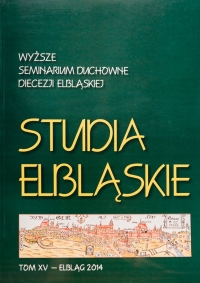
Keywords: Christ on the Mount of Olives; technological research; „Golden opuka”; origin; Prague
The article presents the results of the latest technological research statue of Christ on the Mount of Olives from the collection of the Malbork Castle Museum, and two other sculptures: the statue of St. Elizabeth from St. John Church in Malbork, and the statue of St. Barbara from St. John Church in Toruń (now the Diocesan Museum in Pelplin). As stated in a study commissioned by the Castle Museum, all of the figures are made from the same stone, which is a margly limestone, built mainly of calcite and containing some detrital components, such as quartz and glauconite and small amounts of ore minerals. Lithologically it shows a strong resemblance to the „Golden opuka” (Plänerkalk) – spongilite or marly chert from Prague. The results support the postulate that the figures come from a Czech workshop and allows very likely be considered as imports from Prague. It is another testament to anextensive artistic impact of this resort at the turn of the 14th and 15th centuries.
More...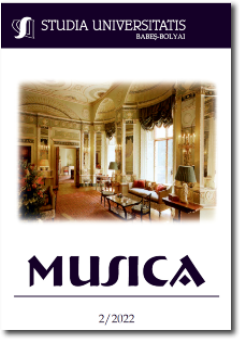
Keywords: ʻMalapartism ̓; Georges Delerue; “Camille”; Curzio Malaparte; Alberto Moravia; Mohamed Hadid; sun’s phenomenology; light; architectural structures; musical structures; Adalberto Libera;Casa Malaparte;
Starting with Johann Wolfgang von Goethe’s vision, who acclaimed that ‘Music is liquid architecture; architecture is frozen music’ , this is an investigation that touches subthemes as a psychological analysis of the characters from the film « Le Mépris » (by Jean-Luc Godard, 1963), made after the eponym novel «Il disprezzo» by Alberto Moravia (1954); an analysis into the music of the film composed by Georges Delerue (1925-1992) – « Thème de Camille », an investigation in George Delerue’s music and other iconic songs from the decade’s atmosphere; a short philosophical introduction into the universe of the architect Curzio Malaparte (1898-1957) and ʻCasa Malaparteʼ from Capri Island. Said so, ʻCasa Malaparteʼ is bought into analysis through the aesthetical-architectural filter of some nowadays epic mansions/residences from Laval, Montréal, Las Vegas, Atlanta, Los Angeles, Bucharest-Kiseleff-Aviatorilor area, which are included in the architectural research-portfolio. More than this, we try to check how architectural structures sculpture the musicalized Being’s essences using examples such as Belle Abri, Villa Cèdres, Villa Astor, Palazzo di Amore, Villa Leopolda, Villa D. Ionescu, Bel-Air, and other magnifiques villas that seem aesthetically very close to Casa Malaparte. In addition, this paper answers the following fundamental questions: Why, sometimes, the music saves/repairs the architectural existentialism? And why is it so important for architecture to create and re-create permanent music? The paper opens and enriches a collaborative research niche between architecture, music, analysis-methods from philosophy field, and the applied philosophies ʻbehindʼ the real estate portfolios; This paper is an exploration of the beautiful universe of some representative mansions, outlining the ineluctable liaison between sonorous structures and architectural structures, highlighting that the vision of Wolfgang Goethe is still alive in the buildings that surround our cities. This paper is a research realised between 2021 and 2022, and it combines observations from philosophy, architecture, literature, music, and real estate’s domain.
More...Keywords: technology; mind; consciousness; philosophy; intuition; modern man; science;
The current research work aims at analyzing the relationship between the intellectual development of the human being and the advancement of current technology, trying to identify the limits of this relationship. We start from the premise that the transdisciplinary approach, by making use of fundamentals, can provide an insight both into the current technological reality and its future perspectives. The recourse to philosophy to understand what is happening today with man in relation to technology is conferred by the need to seek the basis of this progress of human thought that is not immune to insurmountable difficulties and undesirable effects.
More...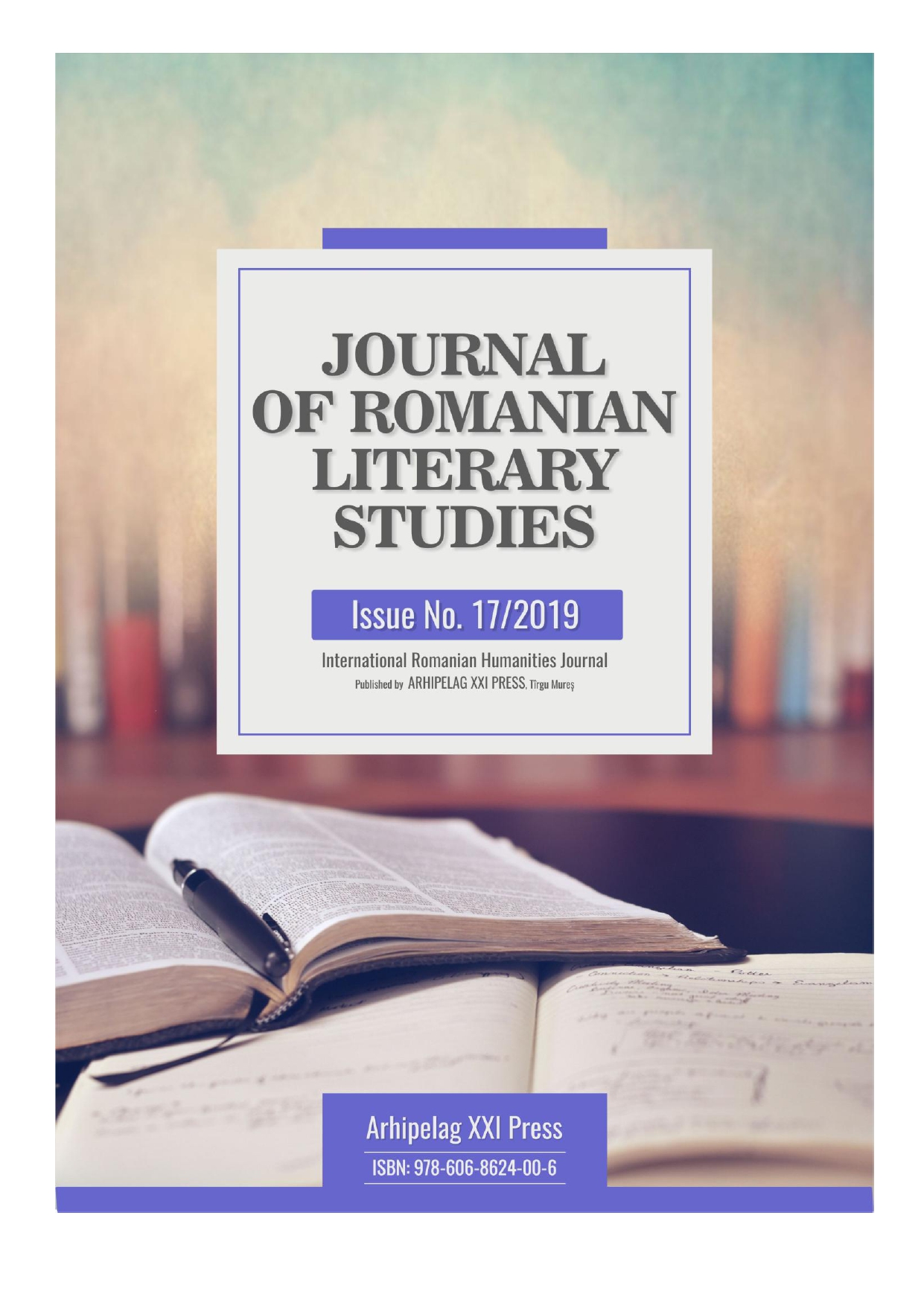
Keywords: Shakespeare; translation; Voltaire; Letourneur; theater;
This paper contains a brief analysis of the French cultural environment between the 18th and 19th century in order to closely observe, starting with the reception of Shakespeare‘s texts, the way in which translation was imagined and accomplished during the ,,belles infidels” era. The study takes into consideration both the opinions of the French literati regarding the threat that Shakespeare‘s theatre poses to the neoclassicist paradigm and the way in which these literati chose to translate the author. A general direction in the reception of Shakespeare‘s plays is thus identified and is represented by the resistance to foreign elements that, from one case to another, involves either a categorical refuse towards change or an attempt at cultural acclimatization. The study of the aforementioned translations, from Voltaire to François-Victor Hugo, is representative to a culture that slowly transitioned, from the point of view of translation studies, from cultural hegemony to the ideal of univocacy. The subject approached also occasions a discussion about the creation of meaning, at the level of the author‘s intentionality as well as at the level of reception. The study of Shakespeare‘s translations presupposes the analysis of a cultural mentality that, shifting between its preservation instinct and its need to evolve, creates new meanings.
More...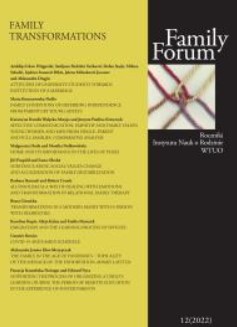
Keywords: substance abuse; social values; family; destabilization;
Background: Substance abuse has the potential to change value orientations and affects all aspects of human life. Objectives: The text aims to show the shift in value orientations of respondents who use addictive substances compared to respondents who do not. Methodology: One-way ANOVA was used in the statistical analysis of the dependence of the values on the occurrence of abusive behaviour, with dependencies at the level of p ≤ 0.05 considered statistically significant. Results: There were statistically significant differences between the group of respondents with abstinence from each addictive substance and the group of respondents without abstinence. Substance abuse shifts pro-family values towards greater individualization and thus threatens and destabilizes the family. It strengthens community-oriented values and weakens family-oriented values. Conclusions: The transformation of the value system leads to a destabilization of family ties, which cease to be a priority. Working with values should be an opportunity for social pedagogy, social work, and all types of schools. Non-formal and informal education present particular opportunities for values education. In many cases, it is unnecessary to change the value system, but only to show the non-deviant way of fulfilling values.
More...